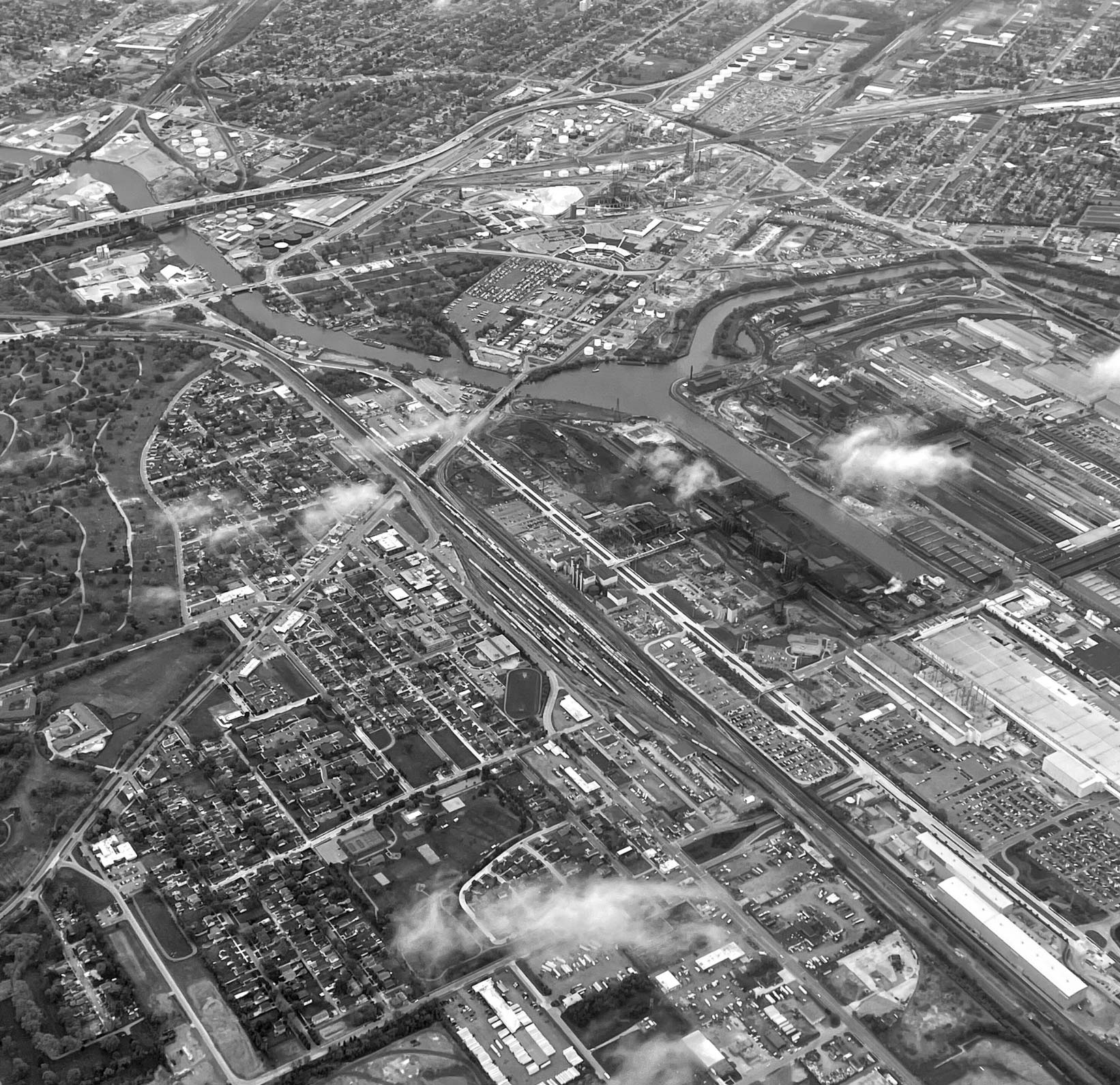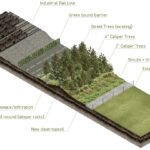
Dearborn Industrial Greenbelt Nature-Based Solutions Feasibility Study
[July 2024 – October 2024]
The Dearborn Industrial Greenbelt in the Southend neighborhood envisions the coexistence of residential and industrial uses, while improving public health indicators and guiding the progressive transformation of land uses along Industrial Street. Adjacent to some of the largest industrial sites in the region, busy rail lines and truck routes, Southend’s residents are disproportionately exposed to high levels of air and noise pollution. This study conceptualizes the Industrial Greenbelt as a multifunctional vegetated buffer on city-owned properties and assesses its environmental benefits for air quality mitigation, as well as potential co-benefits, including flood and noise pollution mitigation, the creation of wildlife habitats, and an improved quality of life. The City of Dearborn, through the Department of Public Health, commissioned the study to assess phased implementation, identify pilot projects, and pathways for multi-stakeholder engagement, as well as funding opportunities. The project included collaborators from the School for the Environment and Sustainability (SEAS) and the College of Engineering (CoE).
[NATURE-BASED SOLUTIONS]
Project collaborators include:
- Lisa DuRussel – University of Michigan, School for Environment & Sustainability
- Curt Wolf – University of Michigan, Civil & Environmental Engineering
Student research assistants include:
- Teresa Zbiciak – Master of Landscape Architecture
- Richard Hua – Master of Architecture
- Chengdai Yang – Master of Architecture
- Jess Chen – Master of Urban Design
Faculty:
Kathy Velikov
María Arquero de Alarcón







